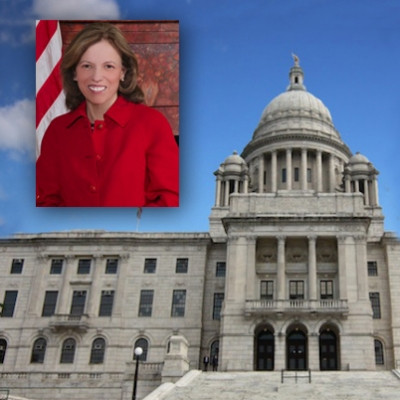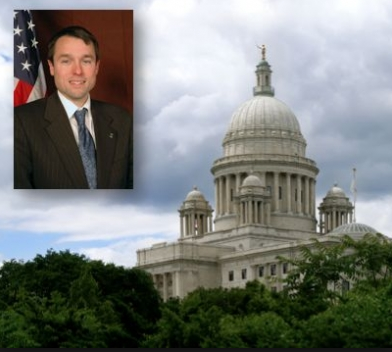Friday Financial Five – April 25th, 2014
Friday, April 25, 2014
High frequency traders face lawsuit
It was just a matter of time before the practice of high frequency trading, recently exposed on a national stage by Michael Lewis, faced a legal challenge. Front running typically pertains to one party buying or selling based on another parties’ non-public trading information. With that in mind, the initial class action lawsuit (filed by the city of Providence) may have merit, based on the accusation that high frequency traders front run electronically. It will also be interesting to see how any projected damages would be calculated. There are plenty of well known names on the list of defendants and the number of plaintiffs is expected to grow.
IRS audits small percentage of large partnerships
GET THE LATEST BREAKING NEWS HERE -- SIGN UP FOR GOLOCAL FREE DAILY EBLASTIt stands to reason that the Internal Revenue Service would utilize resources to most cost effectively review tax returns. This usually means a focus on the bigger fish, so the government is bringing in more tax revenue than it spends to perform audits. But asReuters points out, according to the Government Accountability Office, less than one percent of large financial partnerships with over $100 million in assets were audited in 2013. This is a tax advantaged group and includes hedge funds. The IRS responded to the GAO report "budget reductions over the past few years have severely limited our work in this area."
No signs of the “wealth effect”
According to the chief economist at JP Morgan Chase, the abundance of wealth created in the last five years has yet to materialize in a commensurate increase in consumer spending. The “wealth effect” in economics surmises that increased wealth will lead to increased spending, increasing economic activity. Many dispute that attaining wealth will cause individuals to spend, especially if those with increased wealth were already rich. Plenty of evidence suggests spending doesn’t increase or decrease with the stock market. Also, the country is de-leveraging, focusing on individual responsibility for retirement, and facing an increased tax environment. It makes sense that increases in wealth would be saved or used to pay off consumer debt.
Setback in March home sales
Home purchases in much of the country hit a snag in March, a sign housing momentum is slowing. Despite the downturn in sales, prices of both new homes and existing homes continue upward. The median new home price hit $298,000 and the median existing home price hit $198,000. The combination of higher prices and increased mortgage requirements may be putting the strain on buyers, but sellers apparently are continuing to hold firm on price.
The settlement that apparently wasn’t a settlement
The recent news that Bank of America had settled for $9.5 billion may not be the end of that issue. The Justice Department is interested in making sure BOA becomes the leader of the pack in mortgage related restitution, requesting payback totaling more than JP Morgan’s $13 billion settlement. According to Bloomberg, BOA has already spent over $50 billion since 2008 resolving this mortgage issue.
Dan Forbes is a regular contributor on financial issues. He is a CFP Board Ambassador. He leads the firm Forbes Financial Planning, Inc in Providence, RI and can be reached at [email protected] .
Related Slideshow: 7 Strategies for Rhode Island Economic Development in 2014
What will it take to move the Rhode Island economy forward in 2014? GoLocal talked with elected officials, candidates, and leaders for their economic development plans in the coming year.
Below are key elements of the economic priorities for Governor Lincoln Chafee, Speaker of the House Gordon Fox, Senate President M. Teresa Paiva-Weed, House Minority Leader Brian Newberry, gubernatorial hopefuls General Treasurer Gina Raimondo and Ken Block, and RI Center for Freedom and Prosperity's Mike Stenhouse.
Related Articles
- Friday Financial Five—May 17th, 2013
- Friday Financial Five – August 24th, 2012
- Friday Financial Five – February 15th, 2013
- Friday Financial Five – January 18th, 2013
- Friday Financial Five – March 15th, 2013
- Friday Financial Five – November 16th, 2012
- Friday Financial Five – November 9th, 2012
- Friday Financial Five – September 7th, 2012
- Friday Financial Five–August 30th, 2013
- Friday Financial Five–June 28th, 2013
- Friday Financial Five–September 27th, 2013
- Friday Financial Five
- Friday Financial Five—May 24th, 2013
- Friday Financial Five – August 31st, 2012
- Friday Financial Five – February 1st, 2013
- Friday Financial Five – January 24th, 2014
- Friday Financial Five – March 1st, 2013
- Friday Financial Five – November 1st, 2013
- Friday Financial Five – October 12th, 2012
- Friday Financial Five –December 14th, 2012
- Friday Financial Five–August 9th, 2013
- Friday Financial Five–June 7th, 2013
- Friday Financial Five–September 6th, 2013
- Friday Financial Five—April 12th, 2013
- Friday Financial Five—May 31st, 2013
- Friday Financial Five – August 3rd, 2012
- Friday Financial Five – February 21st, 2014
- Friday Financial Five – January 25th, 2013
- Friday Financial Five – March 21st, 2014
- Friday Financial Five – November 22nd, 2013
- Friday Financial Five – October 19th, 2012
- Friday Financial Five –December 21st, 2012
- Friday Financial Five–July 12th, 2013
- Friday Financial Five–October 11, 2013
- Introducing: Friday Financial Five
- Friday Financial Five—April 19th, 2013
- Friday Financial Five—May 3rd, 2013
- Friday Financial Five – December 13th, 2013
- Friday Financial Five – February 22nd, 2013
- Friday Financial Five – January 31st, 2014
- Friday Financial Five – March 22th, 2013
- Friday Financial Five – November 23rd, 2012
- Friday Financial Five – October 26th, 2012
- Friday Financial Five –December 28th , 2012
- Friday Financial Five–July 19th, 2013
- Friday Financial Five–October 18th, 2013
- Friday Financial Five—April 26th, 2013
- Friday Financial Five – April 11th, 2014
- Friday Financial Five – December 20th, 2013
- Friday Financial Five – February 28th, 2014
- Friday Financial Five – January 3rd, 2014
- Friday Financial Five – March 28th, 2014
- Friday Financial Five – November 29th, 2013
- Friday Financial Five – October 5th, 2012
- Friday Financial Five –December 7th, 2012
- Friday Financial Five–July 26th, 2013
- Friday Financial Five–October 25th, 2013
- Friday Financial Five—April 5th, 2013
- Friday Financial Five – April 18th, 2014
- Friday Financial Five – December 27th, 2013
- Friday Financial Five – February 7, 2014
- Friday Financial Five – January 4th, 2013
- Friday Financial Five – March 7th, 2014
- Friday Financial Five – November 2nd, 2012
- Friday Financial Five – September 14th, 2012
- Friday Financial Five–August 16th, 2013
- Friday Financial Five–July 5th, 2013
- Friday Financial Five–October 4th, 2013
- Friday Financial Five—August 17th, 2012
- Friday Financial Five – April 4th, 2014
- Friday Financial Five – December 6th, 2013
- Friday Financial Five – January 11th, 2013
- Friday Financial Five – July 27th, 2012
- Friday Financial Five – March 8th, 2013
- Friday Financial Five – November 30th, 2012
- Friday Financial Five – September 21st, 2012
- Friday Financial Five–August 23rd, 2013
- Friday Financial Five–June 14th, 2013
- Friday Financial Five–September 13th, 2013
- Friday Financial Five—May 10th, 2013
- Friday Financial Five – August 10th, 2012
- Friday Financial Five – February 14th, 2014
- Friday Financial Five – January 17th, 2014
- Friday Financial Five – March 14th, 2014
- Friday Financial Five – November 15th, 2013
- Friday Financial Five – November 8th, 2013
- Friday Financial Five – September 28th, 2012
- Friday Financial Five–August 2nd, 2013
- Friday Financial Five–June 21st, 2013
- Friday Financial Five–September 20th, 2013










